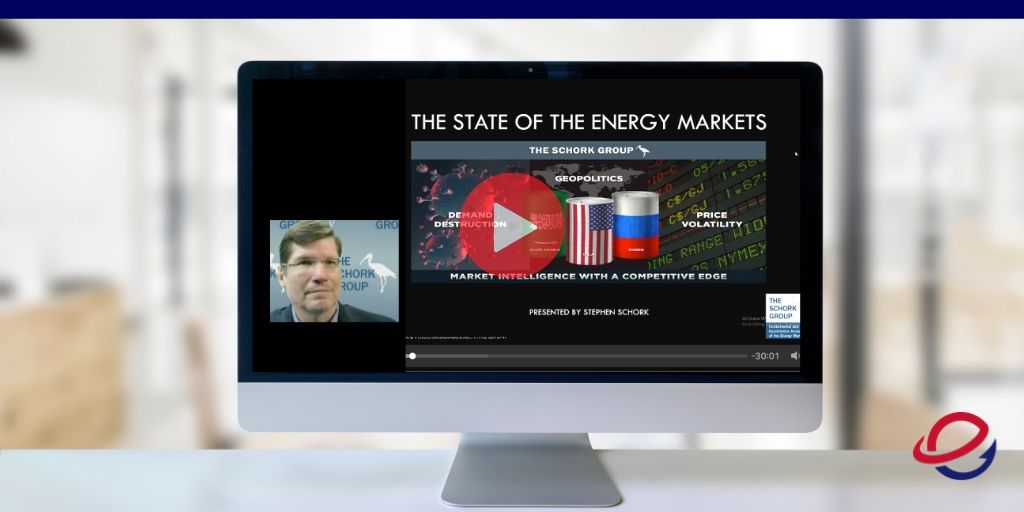

MESSAGE FROM CEO
This will change everything
Small measures can have huge impacts.
We all know this now; our world has been turned upside down by a scrap of genetic material called the COVID-19 virus.
Can microscopic measures also have positive outcomes? Can tiny scraps of code also make the world better?
Yes, I believe they can. Let me give you an example…

Getting Off the Energy Market Roller Coaster
Organizations generally take their energy procurement for granted. They do so at their peril. The case of a high energy consuming company in Alberta provides a cautionary tale.
This company signed a long-term contract while power costs were high in 2013 – at around $80/MW. By 2016, power prices had plunged to $18/MW. Yet, under the contract terms, the company was committed to paying a much higher rate.
What did they do?

Ontario Temporarily Freezes Global Adjustment Rates
The Ontario Government has announced a freeze and a deferral of a portion of Global Adjustment electricity charges for the months of April, May and possibly June.
These changes are intended to help Class A and Class B electricity consumers manage through the disruption caused by actions to contain the COVID-19 pandemic.

How has COVID-19 disrupted Canadian Energy Markets?
Recent price declines in North American oil and gas markets are challenging for Canadian producers but may present commercial and industrial energy consumers with a “tremendous opportunity”. This is the verdict of Mr. Stephen Schork, founder of the Pennsylvania based energy advisory firm, The Schork Group. He made the observations during a webinar presented by 360 Energy on May 14.
Schork told webinar attendees that American oil producing companies need a sustained price of approximately $50/barrel ($US) to develop new production. He noted that rolling contract prices for West Texas Intermediate (WTI) on the NYMEX are currently trading in the vicinity of $25/bbl.

Webinar / Heidelberg Cement in Northern Europe describes their path to Carbon Neutral Concrete Products
Concrete is a necessity to develop a sustainable society. But the carbon footprint from the cement which is the glue in concrete is a challenge.
The industry is among the big emitters, and has a responsibility to develop future solutions. In practice; commitment to high level goals is not enough!
Heidelberg Cement Northern Europe launched in 2013 a “0-vision” describing how the path to “carbon neutral concrete products”. To reach that goal, CCS is essential!
Project development has taken long time, but this year we are closer than ever to realize “the first full-scale capture plant at a cement plant”.
Join Per Brevik, Director, Sustainability and Alternate Fuels of Heidelberg Cement in Northern Europe, as he takes us through their journey.

Webinar / Zero Emissions: Lessons from Europe and the UK
We hear the term “zero emissions” a lot these days, and see news of a number of corporations and organizations pledging to be zero emissions.
What does this ultimately mean? Can your organization do it, and how do you get there? In this webinar we will be addressing the following questions, with lessons and examples of work done in the UK and Europe:
- What is meant by zero emissions and the difference between terms such as carbon neutral, net-zero emissions, etc.
- How realistic is it to become a zero-emission organization?
- How do you work towards zero emissions?
- How do you develop a zero-emissions road map?
- What are the costs/benefits of being zero emissions?
Join 360 Energy and John Pooley (Managing Director, John Pooley Consultancy; founding member of Carbon Trust’s Consultant Accreditation Board; and Vice President Program Development, 360 Energy Inc.) who is based in the UK and has extensive experience of carbon management both in the UK and EU on Thursday, May 28 at 1:00pm EST .
Learn from John’s UK and EU experience to help prepare for a zero emission future.

Coaches Circle
Energy management is people management – coordinating the contributions of many people across an organization to reduce energy costs and improve efficiency.
The energy management process can stall for several reasons. Key champions take vacations. Key staff may be furloughed due to pandemic measures. Individuals may be absent because of serious illness or family emergencies. Positions become vacant as people take employment elsewhere.
The risk of stalling increases if energy management is the responsibility of only one person.
Find out how to mitigate the risk of disruptions caused by vacation breaks and other staffing changes.












